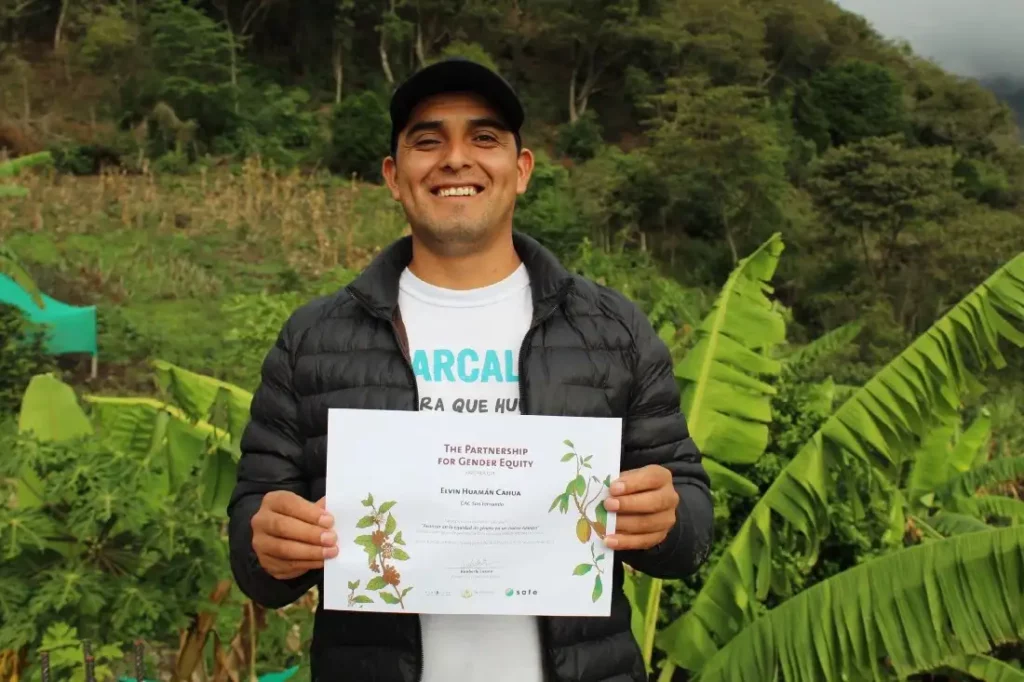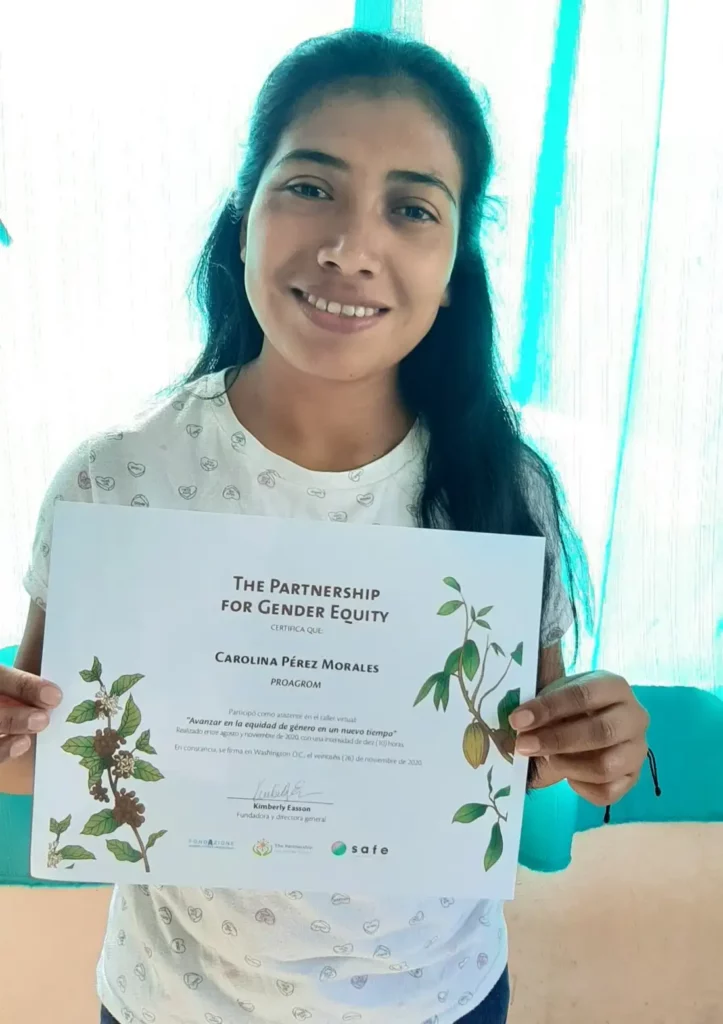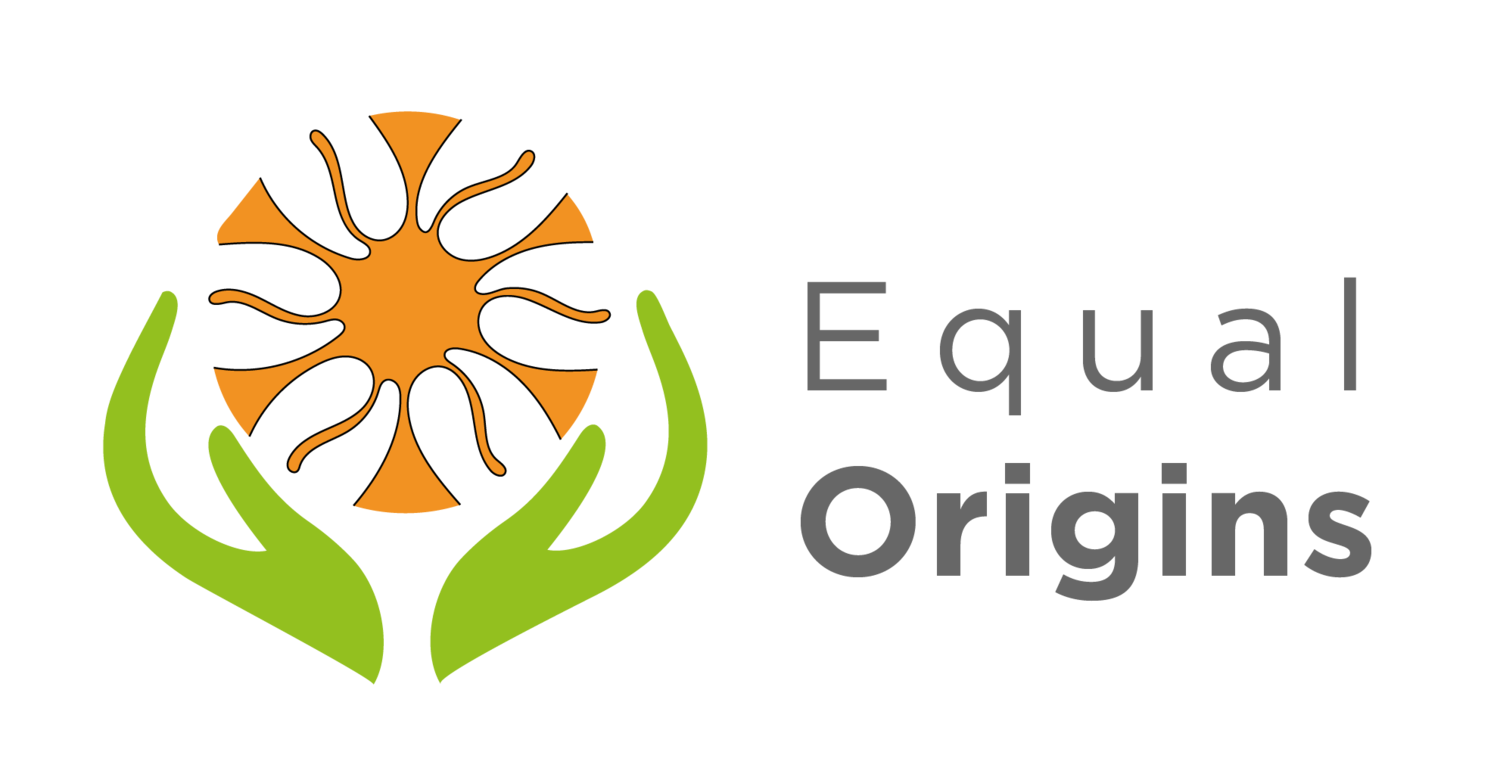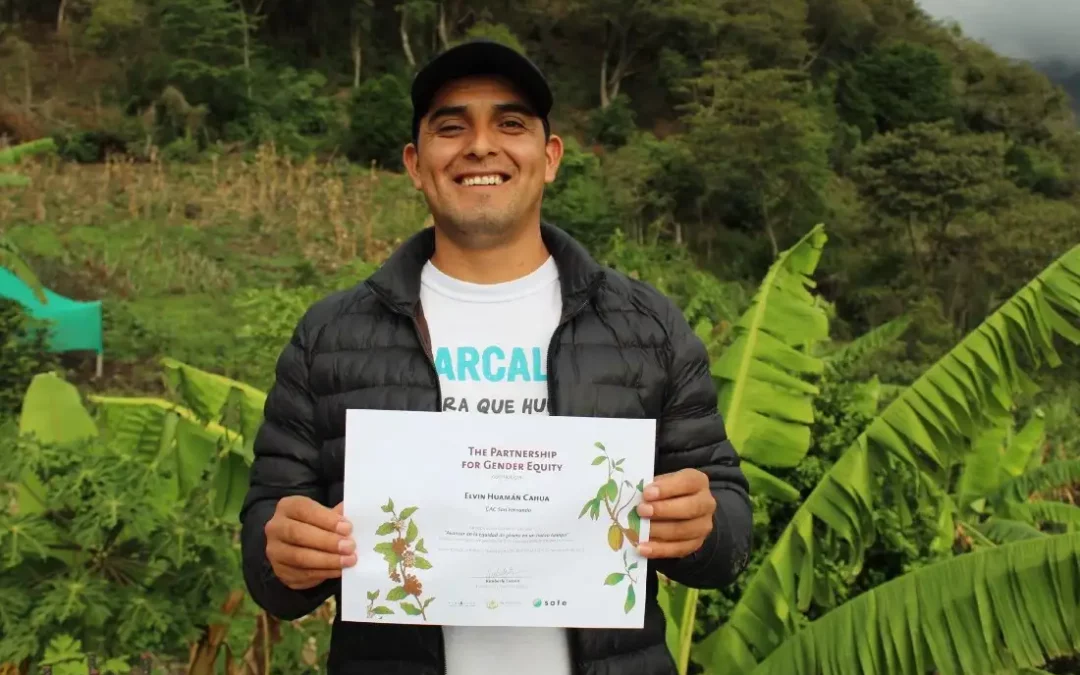
The restrictions on the business operations of coffee and cocoa companies — from farmers to baristas — necessitated by the COVID-19 pandemic to serve public health interests, may cause unintended collateral damage by stymieing efforts to achieve gender equity across these sectors. “There is a concern that we could lose the progress that we have made on [achieving] women’s empowerment and gender equity,” said Kimberly Easson, founder of the Partnership for Gender Equity (PGE).
Against this backdrop, Equal Origins’ work with farmer organizations and companies to encourage concrete steps toward gender equity in their companies takes on a renewed urgency if the industry is to avoid the loss of nascent gains made thus far.
To discuss this and other systemic concerns hindering the progress of gender equity, representatives of farmer organizations gathered with company delegates in early November for the fourth and final session of Equal Origins’ first Virtual Learning Journey. The Virtual Learning Journey, hosted by PGE with support from the Safe Platform of the InterAmerican Development Bank, gathered fifty representatives from twenty-five farmer organizations from eight countries throughout Latin America in a ten-week program to share their experiences and “develop a shared understanding of the challenges and opportunities farmer organizations face with regard to gender equity,” said Easson.
By bringing together producers and end-market participants (coffee roasters and chocolate brands) in the fourth session of the Virtual Learning Journey, the conversation took on a whole-of-industry tone, and Easson encouraged participants to “work with the sector as a whole to identify areas for collaboration.” In an opening address from Veronica Rossi, manager of sustainability projects at the Lavazza Group, a primary sponsor of the Virtual Learning Journey, she emphasized “It’s really crucial that all of us — traders, roasters, co-operatives, farmers, and all the actors in the chain — work together to empower women and make gender equality a reality for our business and our industry.”
Easson emphasized the significance of this effort, noting the large number of people “who could be touched by the work we’re doing here together.” The participating farmer organizations represent nearly twenty-five thousand families, combined with the vast number of consumers who purchase products from the participating coffee and chocolate brands, demonstrating the scope and reach of the work undertaken in this series.
While “there is a high degree of recognition that gender equity is a foundation of sustainable coffee and cocoa sector,” noted one participant, few organizations have an official plan or framework to further this work. The lack of systematized solutions to systemic problems remains one of the greatest challenges facing both companies and producer organizations, and a recurring point of discussion in each of the breakout groups on the topic.
At the outset of the session, Easson delivered contextual analysis and a series of statistics. On average, female members account for roughly 24% of memberships in the participating farmer organizations. Meanwhile, the average percentage of female board members across the organizations is 19%. Women are involved, yet not represented at a leadership level.
While 40% of the producer organizations have a budget allocated for gender equity measures, most have no plan in place to guide concrete steps to achieve gender equity or implement gender equality policies. While “this is an issue that companies are taking seriously, are taking into account,” said one participant, for a variety of cultural and contextual reasons, most companies lack the framework to follow through on the intent.
A producer organization participant noted that the “male-driven culture of Latin America makes it harder for [women] to be recognized and take on a leadership role.” He described how young women start families earlier, which hinders their ability to take on full-time work. “It’s easier to engage older women,” he said, “but young women are not well represented and it’s really hard to get them involved.” Additional constraining factors include women’s limited access to land, or if they work with their husbands it is the man’s name that is listed on the paperwork. It was noted that, “women’s participation gets diluted in that sense.”
Juan Pablo Solis, manager of the Safe Platform at the InterAmerican Development Bank, noted that while many buyers focus on the quality of products, there is an increased consideration of what he called “social scorecards.” This focus on ethical processes as an incentive for consumers is a driving force for gender equity work.
As part of the virtual workshop series, participating farmer organizations filled out their own “scorecards” offered by PGE that provided organizations with a snapshot of their performance relating to key components of gender equity. Based on this self-assessment, they created action plans. In those action plans, organizations noted that their major needs going forward include: equitable access to services and resources, formal organizational statutes and policies, and the strategies and resources to put them in place. Overall, they noted, services must reflect the real needs of women and their families, and their organizations must take meaningful steps to enact change.
According to these action plans, end-market roasters and chocolate brands can support producer organizations to achieve these ends by providing both resources and technical assistance for their supply chain partners to look more closely at their progress toward achieving gender equity. Ultimately, plans and strategies should be developed “based on the realities of organizations,” and become “part of a more holistic approach,” said Easson. “Equal Origins will continue our work with the company and producer organization participants to strengthen collaborative action toward meaningful change on gender equity across the coffee and cocoa sectors.”

Equal Origins’ Virtual Learning Journey is a ten-week online program that supports producer organizations to identify opportunities for greater gender equity, develop plans to take action, and engage with companies who wish to encourage their efforts. Starting in Spring 2021, Equal Origins will offer the Virtual Learning Journeys on a quarterly basis in either English, Spanish, or French. To learn more, sponsor a farmer organization in your supply chain, and/or participate in the discussion, visit: https://equalorigins.org/virtual-learning-journey/.

